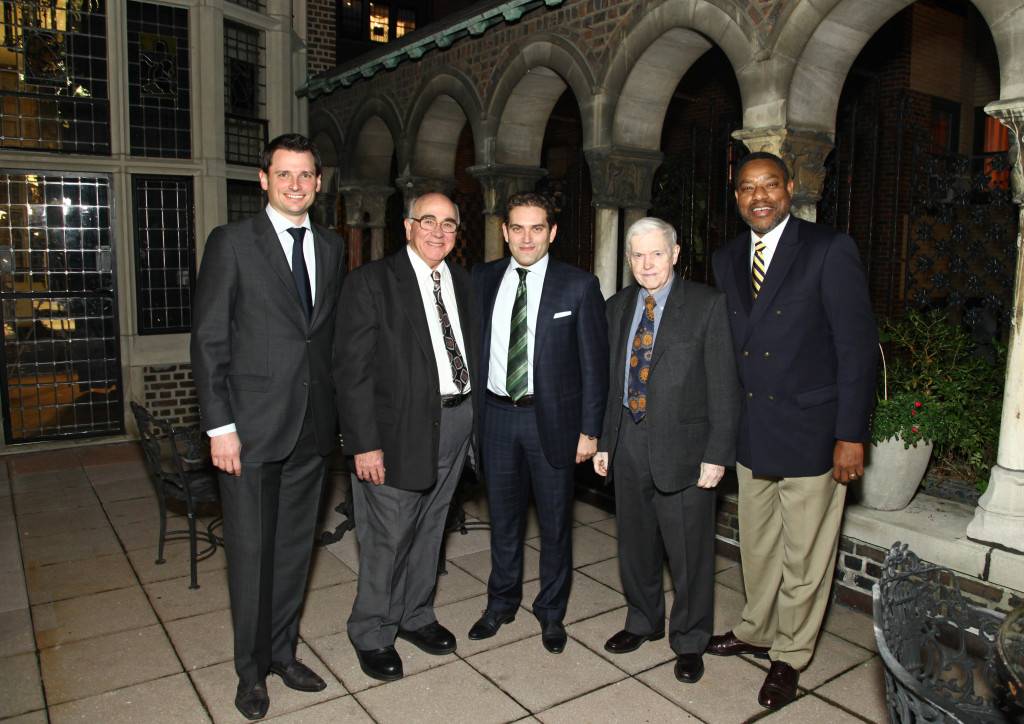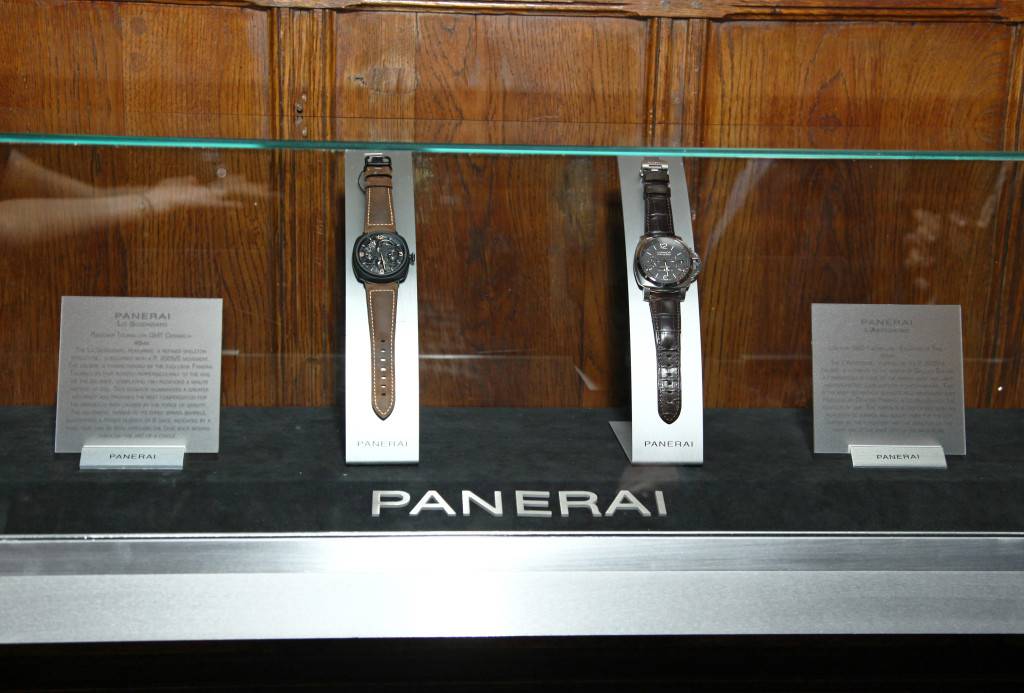
On November 2, Italian high-end watchmaker Officine Panerai hosted “Time + Space: A Look Back at the ‘Clockwork Universe’” at the Explorers Club in New York City. The event celebrated the 400thAnniversary of Galileo Galilei’s discovery of the four moons of Jupiter with a panel discussion featuring the world’s leading astronomers: Dr. Owen Gingerich, Dr. Anthony Aveni and Dr. Derrick Pitts. The panel discussed how Galileo’s scientific contributions continue to impact modern day watchmaking, with Frank Stalder, Director of Research and Development for Officine Panerai, on hand to bring the discussion to life with the presentation of three exemplary Panerai timepieces inspired by and dedicated to the scientist – L’Astronomo, Lo Scienziato and Jupiterium.
During the panel discussion, Dr. Owen Gingerich, one of the world’s foremost experts on Copernican theory, unveiled some of his latest findings about the timing of Galileo’s discovery of the moons of Jupiter. While studying Galileo’s notes on the topic, Gingerich noticed that in one entry Galileo seemed almost confused in his findings, while an entry immediately following was succinct and clear, especially in regards to the issue of heliocentricity. Following entries were written in Latin rather than the previously-used Italian, an indication that Galileo’s notes on the matter were now meant to reach a broader, international audience. These two factors led Gingerich to conclude that this was the exact moment that Galileo discovered the moons of Jupiter and thereby revolutionized the world of astronomy.

Additionally, Dr. Anthony Aveni spoke about the relationship between people and time well before the Scientific Renaissance, the horological revolution and the importance of timekeeping in the generations leading up to Galileo’s era. Lastly, Dr. Derrick Pitts spoke on the age of the universe and how time relates to people today.
Panerai North America President Rafael Alvarez welcomed the audience which included famed explorers, legendary astronauts and Panerai loyalists, by noting that Galileo and Officine Panerai share Florentine roots, in addition to their respective discoveries in the science of measuring time. The 150-year-old watch-making brand was founded on the Ponte alle Grazie in Florence by Giovanni Panerai in 1860 and the original boutique still stands on the Piazza San Giovanni today
Combining some of the rarest, most exclusive and fascinating specialties in watchmaking, the L’Astronomo and the Lo Scienziato – both on display at the event – are the most complicated timepieces Panerai has ever created. The Jupiterium, which is permanently housed at the Museo Galileo in Florence, is a planetarium-clock with a perpetual calendar that shows the positions of the Sun, Moon and Jupiter depending on its current geocentric point of view. It also monitors and calculates the movements of the so-called Medicean planets – or Jupiter’s four main satellites Io, Europa, Ganymede and Callisto – observed for the first time by Galileo Galilei in 1610 following his invention of the telescope.
For more information about Officine Panerai, visit www.panerai.com
Like Haute Time? Join our Facebook page or follow us on Twitter @hautetime.
Like Haute Living New York? Join our Facebook page or follow us on Twitter @HauteLivingNY. Want Haute Living New York delivered to your inbox once a week? Sign up for our newsletter.